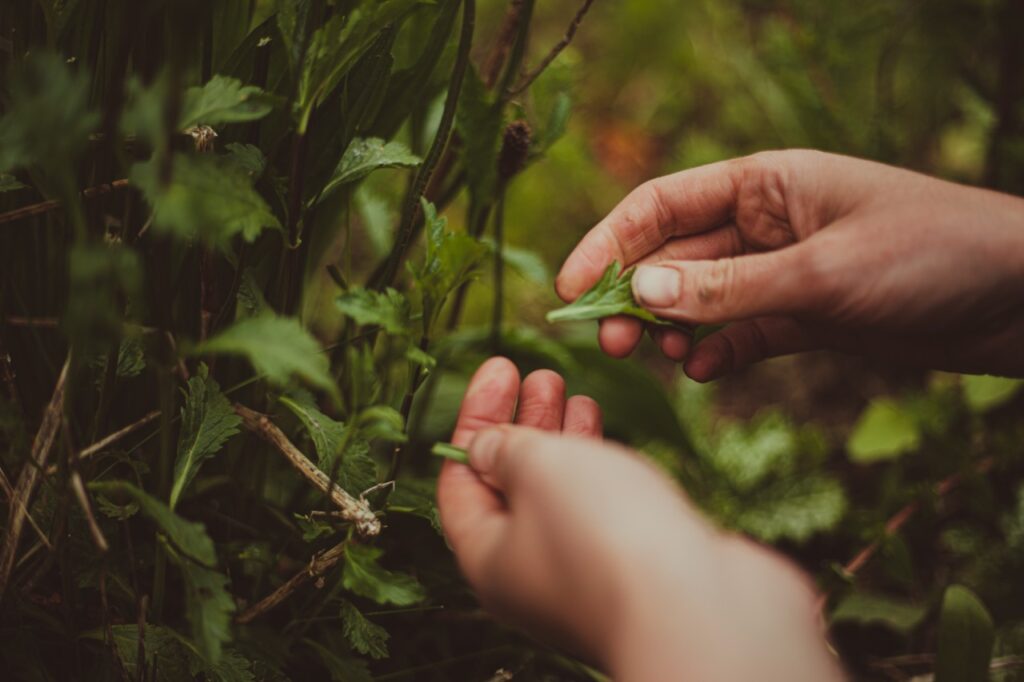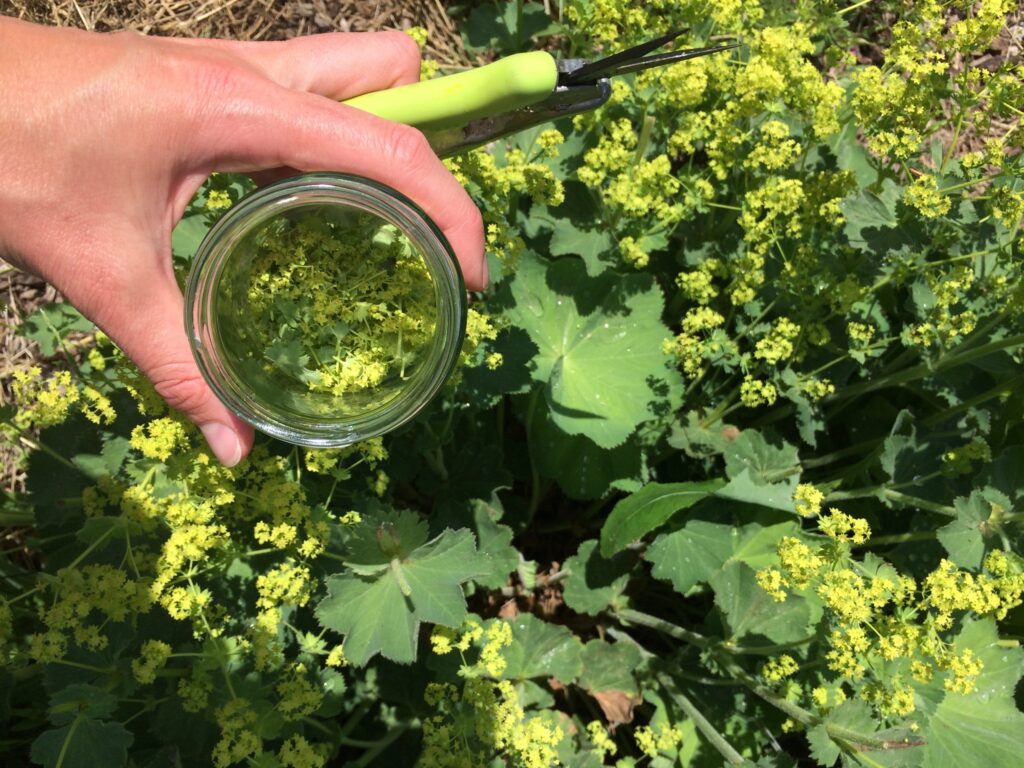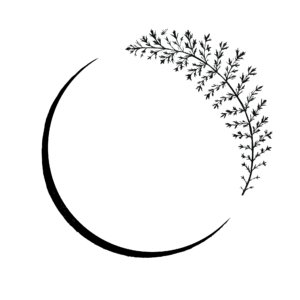The herb garden is a healing sanctuary where I grow the medicinal herbs available in my apothecary & hold 1:1 sessions.
Much of my work revolves around the herb garden I look after at Old School Farm on the Dartington Estate. I’ve been guardian to this small patch of land (approx. 1/4 of an acre) since 2017 and my relationship to it has become an important, focal part of my work and life.
I tend to the land using regenerative, permaculture and forest garden principles which means I grow herbs by working alongside natural systems and the ecology of the place. I feed the soil, keep it messy and am always finding new (old) ways to increase its biodiversity and support the ecology of the garden as a whole.
I have a deep respect for this piece of land ~ for its diversity, beauty and the many ways it can support, nourish and hold us in our healing. My aim is to cultivate a reciprocal relationship of connection and respect with the land and the web of life there ~ understanding that we human animals and all that happens in our bodies is not separate from anything that happens, lives and grows there.
I’m very grateful to be able to share the herb garden with client’s during in person sessions. Clients reap the many benefits of time spent being resourced by the garden & feeling the innate, holding container the land offers.
Why be inside when we can surround ourselves with the breath of the world?
I witness the land so present to us on out healing journeys & with our stories. I believe that the web of life longs for the return of our stories ~ of the land based oral healing culture we have forgotten but not lost. Through the work I do with clients at the herb garden, we are learning to listen and remember a forgotten language.
In my gardening, I follow the principle that plants will never naturally leave a piece of soil uncovered so I use a variety of ground cover plants and mulch to mimic this and protect the soil. Look after the soil and the soil looks after everything else! The herbal ground cover species I grow include ground ivy, sweet woodruff, self heal, white clover, strawberry, creeping thyme, creeping savoury, corsican mint and dwarf comfrey. I grow most herbs from seed I have gathered myself of bought from local organic seed suppliers. I use woodchip, scythed grass cuttings (I only scythe, no mowers, no oil), cardboard, sheepswool. I only use mypex temporarily in tougher situations. I make my own compost.
I grow a wide range of medicinal herbs (+50 species) that are helpful for tending the health of women and menstruators. I grow them in polycultures which means herbs are always growing alongside other herbs in a self sufficient way that promotes healthy plants, mimics how they grow in the wild and encourages insect life. There is no such thing as ‘weeds’ in my garden ~ all pioneer plants (weeds are actually soil healers) are very welcome and are of course themselves such amazing medicine for us and the land.
I like to also prescribe herbs in polycultures to follow their wild patterning for the benefit of the body ~ herbs like to work together! I will very rarely prescribe a client a single herb. Why mono-crop when we can poly-crop and why mono-pharmacy when we can poly-pharmacy?
The herbs and remedies I offer my clients are all grown regeneratively and ritually hand harvested from my herb garden. I do not buy in herbs or import them from other cultures. I always work with those growing right outside our door. I rarely work with herbs that are locally ‘wild’ gathered but if I do, I gather them responsibly and honourably. I have lessened my impact in this way over the years by introducing the species I might gather ‘wild’ to the herb garden (plants like Elder, Hawthorn, Rosehip and Mugwort).

Since I’ve been guardian to this land, it has diversified to over 70 species of medicinal plants. The garden is always packed full of insects and is home to mice, slow worms, common lizards, rabbits, stoats and has had visits from buzzards, grass snakes, barn owls, toads, deer, many small birds and many more I haven’t yet met.
People always comment on the incredible colour and smell of the herbs I offer which is an indication of their quality and potency. They are more vibrant than shop bought herbs for many reasons ~ because each herb is gathered at an exact seasonal moment and lunar phase that is most suited to its particular medicine but also because they are stored well and used within a year of harvest.

As my home apothecary is small, the herbs I offer are dried in darkness within an hour of harvest and are never stored for longer than a year or in daylight. This careful processing captures and maintains the medicinal compounds within the herbs very well. Each season, each year, a new vibrant harvest is gathered in from the land so freshness is guaranteed.
An acknowledgement to the bees ~
I apprenticed with honeybees for 7 years (perhaps my most significant ecological awakening) and used to have hives on this land. They are the reason this garden exists is because I originally planted it for the bees because I observed them self medicating foraging on the herbs.
After a long journey with honeybees in my life and on this land, it no longer felt right for me personally or ecologically to have them here. In 2020, I gifted our hives to a friend’s nearby apiary and the following year the garden became home to many wild bumblebee nests for the first time. This was ecological evidence that I made the right choice. Wild bees continue to choose the garden as their nest sites and honeybees from near by apiaries continue to visit.
Everything I do here is, at its essence, in service to honeybees and wild bees. My aim with the herb garden is to provide as much medicinal forage the year round for pollinators. In the wild, honeybees would choose to live 1km apart and with that vision in mind, I see every piece of land within 1km of a honeybee hive as an ‘apiary’. Therefore, the garden is still very much an apiary in my eyes even though there are no hives present.
Please contact me if you are interested in visiting the garden or sign up to my newsletter to hear about open days and tours.
Last updated August 2023
